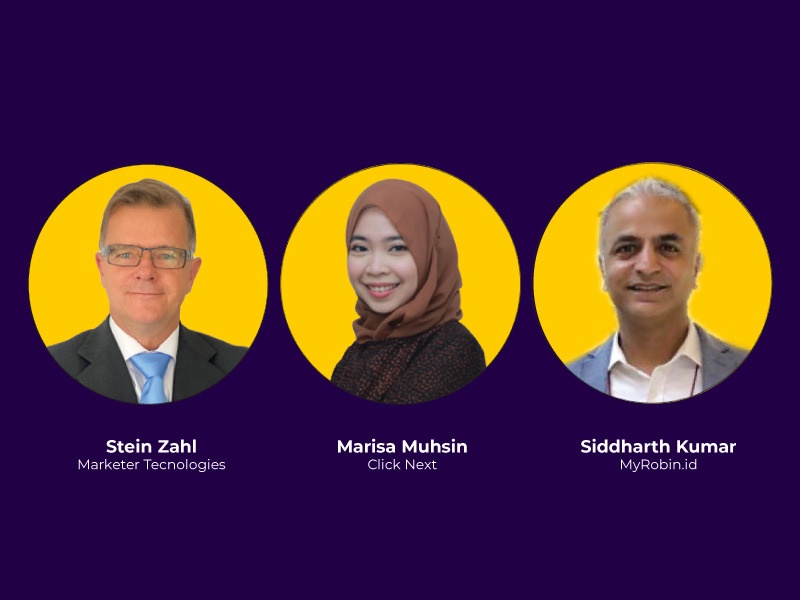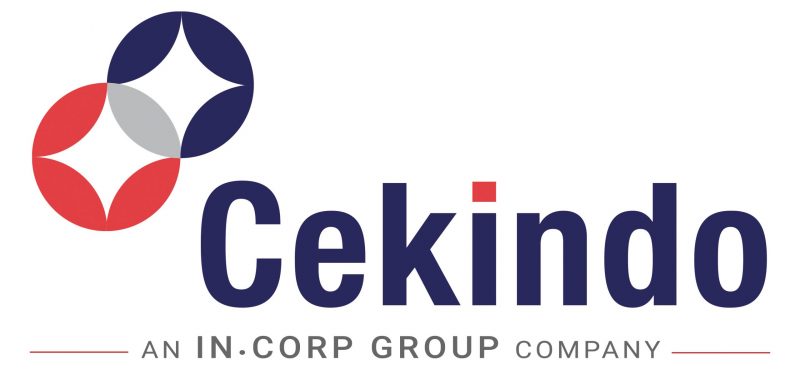Despite economic uncertainty amid the pandemic, Indonesia has seen over US$ 37,5 billion worth of foreign investment across over 73,000 projects.
Cekindo Business International has assisted several of these projects, and we have interviewed a few of them who anticipated, in times of crisis, digital connectivity play a critical component in business continuity.

Stein Zahl – VP Sales for APAC of Marketer Technologies
Q: What attracted you to set up a business in Indonesia?
Indonesia has a very large, young, and internet-savvy population, and that is perfect for our business. As an AI-powered Digital Marketing solution, we need strong digital adoption and data to maximize performance. This is, we believe, a perfect opportunity to introduce our platform into the real estate industry, where both developers and real estate agencies have room for improvement when it comes to digital marketing technology.
Q: Speaking of the young, could you share your experience working with local talent?
Indonesia has one of the biggest pools of social media and digital marketing talent in SEA. The combination of its educational system and highly encouraged entrepreneurial spirit, led by its government, has created a pool of highly motivated individuals.
Indonesia, compared to western countries, does not have a security network in place when you lose your job. These conditions have been shaping the mindset of young people. They have to actively go out and find an opportunity that is right for them, and this is something they are already used to.
“The Covid-19 situation now has amplified this entrepreneurial spirit, in a sense where the opportunities are abundant”.
Q: What do you feel remains a hurdle when doing business in Indonesia?
Generally speaking, for an international company, the Indonesian banking and payment system is still lagging behind. A B2B transaction between international and local companies is a cumbersome procedure – it takes time, and it is very expensive for Indonesian entities. So that is something that we hope to see an improvement in the near future.
Q: How does Marketer technologies help customers during and beyond the pandemic?
The real estate industry is all about selling your property as soon as possible, and we believe AI is the future. With AI, you will reach a much bigger portion of the internet in a shorter amount of time, and identify and connect the best buyers with your property. We empower our clients by giving them high-quality leads matching their property units.

Siddharth Kumar – CEO of MyRobin.id
Q: What attracted you to set up a business in Indonesia?
The Indonesian economy is growing fast – investors and businesses have realized the potential this archipelago has.* And the number one problem faced by growing businesses is manpower. Unlike white-collar workers, who are on LinkedIn and Jobstreet, blue-collar workers are not on any platform, so companies find it hard to discover them.
We are fulfilling the need of a full-stack on-demand manpower solution, that solves the issues of the enterprises and gives the workers not just a paycheck, but peace of mind.
| *Quick Fact: According to BKPM, since the beginning of the pandemic, Indonesia has seen over US$ 37,5 Billion worth of new foreign investment across over 73,000 projects. |
Q: What do you feel remains a hurdle when doing business in Indonesia?
“The Indonesian Government is taking a lot of proactive steps to improve ease of doing business. This includes clarity in guidelines, providing transparency in the processes, and improving system infrastructure.”
Businesses have welcomed these changes. I will not call it a hurdle, but like with anything new, it is only natural for it to take some more time to increase awareness and adoption.
Q: As a company that specializes in hiring and HR management, how do you see Indonesia’s talent pool?
I divide the talent pool in 3 buckets; White-collar workers (software Engineer, online Marketing, etc.), Blue-collar workers (warehouse workers, couriers, waiters, etc.), and Others (e.g. Agriculture, Fisheries workers). I have worked with graduates from top US, UK, and Singapore universities and I am proud to say that the Indonesian talent pool is second to none.
Companies are willing to invest in the white-collar workers, they have internal training and a career path. Blue-collar workers, however, have different needs, and one size does not fit all. We see that much more can be done to meet them, hence MyRobin embedding Financial Services and upskilling. Our goal is to improve the lives of workers and their families.

Marisa Muhsin – Indonesia Representative of Click Next
Q: What attracted you to set up a representative office in Indonesia?
Indonesia is our first foreign investment, initially, we were considering the Philippines and Vietnam, however, we chose Indonesia for its large population, fast-growing economy, and its cultural similarities, in terms of consumer behavior and the way of doing business – both are similar to Thailand.
Q: Can you share your thoughts on Indonesia’s post-pandemic e-commerce sector?
We understand Indonesian consumers well – they love to meet people, chit chat, and see physical things. So as an all-in-one e-commerce solution, we don’t just provide a website but also how to market and brand in a competitive space.
Online stores will grow, but they will not replace offline stores. They serve other purposes such as helping a company save on operating costs. And we have seen this applied across several industries; one of our clients from the automobile industry, who used to traditionally rely on offline showrooms, now see almost 70% of its leads come from their online presence.
“This is a good example to show that in Indonesia, you’ll need both on and offline platforms to synchronize to drive business growth”.
Q: What do you feel remains a hurdle when doing business in Indonesia?
Establishing a company in Indonesia is still hard because of the many regulations and processes to adhere to. In Thailand, you can start a company within a day. But in Indonesia, we required assistance from a market-entry consultant. That is why we had Cekindo to help move the process forward faster and with lesser challenges. I believe the process will improve in the future. But for the moment, if you are investing as foreigners without engaging with a local consultant, it would be quite a hassle.
Commence Your Business in Indonesia with Cekindo
With colossal market potential and considerable support from the government, foreign investment in Indonesia is still favorable amidst the pandemic.
However, breaking into a new market overseas might be intimidating. Cekindo offers a comprehensive range of solutions to ease the company registration process and help you obtain the required licenses efficiently.





